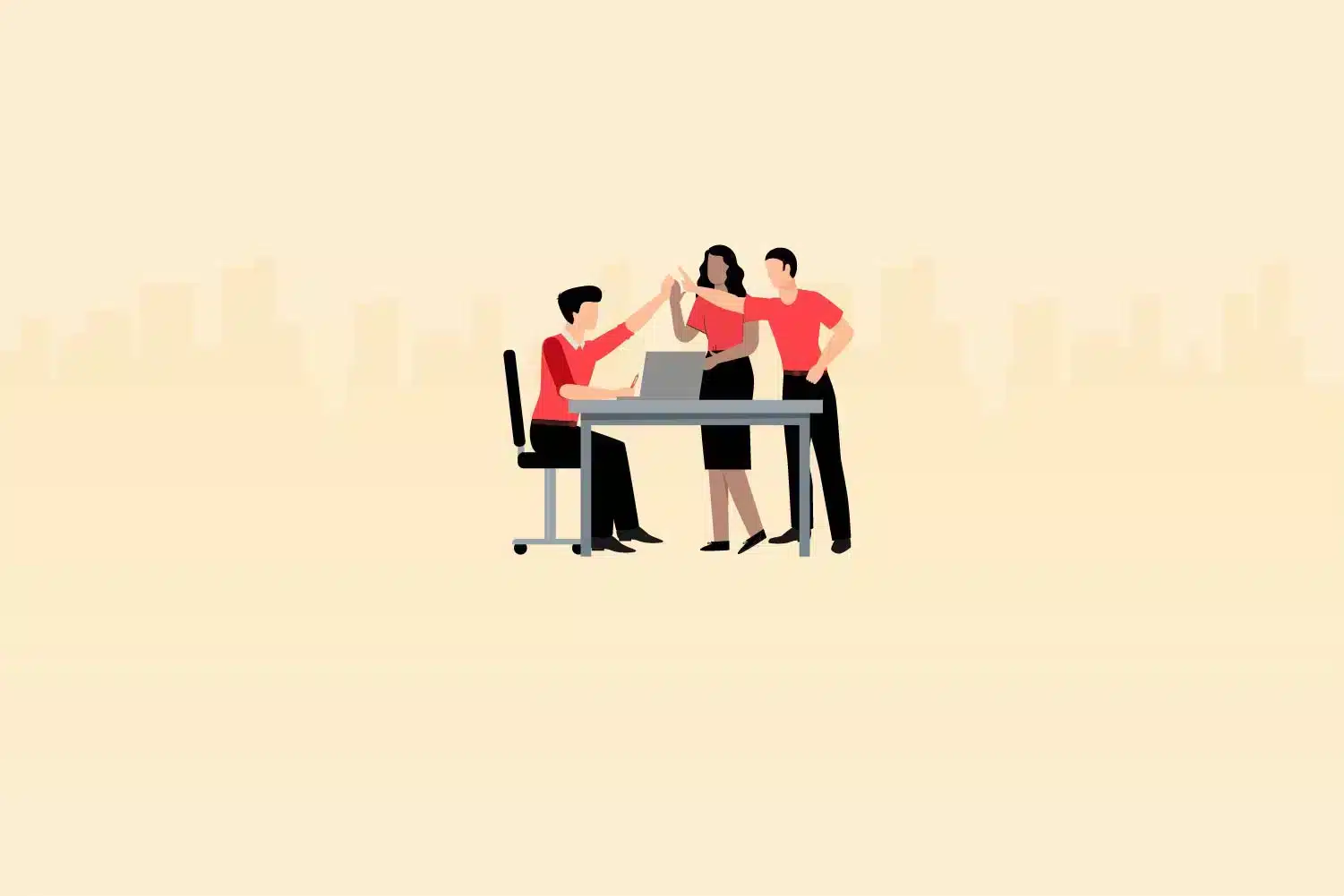The role of a Risk Management Coordinator has become increasingly critical in today’s rapidly evolving business landscape. As organizations face complex challenges and uncertainties, the need for skilled professionals to identify, assess, and mitigate risks has grown exponentially. HR professionals and CXOs are keenly aware of the impact effective risk management can have on the overall success and sustainability of their organizations.
According to recent analytics, the demand for Risk Management Coordinators has seen a significant surge, reflecting a strategic shift towards proactive risk management practices. This introduction will provide insights into the current recruiting trends surrounding Risk Management Coordinators and shed light on the crucial role they play in navigating the dynamic risk landscape of modern businesses.
Here are the top 60 Risk Management Coordinator interview questions to ask job applicants:
15 general interview questions for the Risk Management Coordinator
- Can you provide an overview of your experience in risk management and your specific role as a Risk Management Coordinator?
- What methodologies or frameworks do you use to identify and assess risks in an organization?
- How do you prioritize risks and determine their potential impact on the organization?
- Can you describe a situation where you successfully implemented risk mitigation strategies? What was the outcome?
- How do you collaborate with different departments or stakeholders to gather risk-related information and ensure a comprehensive risk management approach?
- What tools or software do you utilize to support your risk management activities?
\
- How do you stay updated on emerging risks and industry best practices in risk management?
- Can you share an example of a risk you encountered that required immediate attention and how you handled it?
- How do you monitor and evaluate the effectiveness of risk mitigation measures?
- What role do you believe communication plays in effective risk management? How do you ensure effective communication about risks across the organization?
- How do you handle situations where stakeholders have differing risk tolerance levels?
- Can you describe your experience in developing and implementing a risk management strategy for a specific project or initiative?
- How do you ensure compliance with relevant regulations and standards in your risk management practices?
- Can you provide an example of a time when you had to make a difficult decision balancing risk and reward?
- How do you approach risk reporting and presenting risk-related information to senior management or executives?
5 sample answers to general interview questions for the Risk Management Coordinator
- Can you explain your experience with identifying and assessing risks?
Look for: The candidate’s ability to demonstrate their understanding of the risk identification and assessment process, as well as their practical experience in applying these principles.
Sample answer: “In my previous role as a Risk Management Coordinator at XYZ Company, I was responsible for conducting comprehensive risk assessments across various departments. I utilized a combination of qualitative and quantitative methods to identify potential risks, including conducting interviews with key stakeholders, reviewing historical data, and analyzing industry trends. Once the risks were identified, I developed risk matrices and used risk-scoring techniques to prioritize and assess their potential impact. This allowed me to effectively communicate the identified risks to the relevant teams and develop mitigation strategies.”
- How do you ensure compliance with risk management policies and procedures?
Look for: The candidate’s ability to outline their approach to ensuring adherence to risk management policies and procedures, including monitoring and enforcement mechanisms.
Sample answer: “To ensure compliance with risk management policies and procedures, I believe in establishing a robust framework that includes clear guidelines and regular training sessions for employees. I have previously developed and implemented risk management protocols, including detailed standard operating procedures (SOPs) and checklists, which were regularly communicated to all stakeholders. Additionally, I conducted regular audits and assessments to monitor compliance, providing feedback and recommendations for improvement as necessary. By fostering a culture of risk awareness and accountability, I successfully maintained a high level of compliance throughout the organization.”
- How do you communicate and report risks to stakeholders?
Look for: The candidate’s ability to effectively communicate complex risks to various stakeholders and their experience in creating clear and concise risk reports.
Sample answer: “Communication is crucial when it comes to reporting risks to stakeholders. In my previous role, I developed a streamlined reporting process that involved creating concise risk reports tailored to the specific needs of each stakeholder group. I utilized visual aids, such as charts and graphs, to present complex risk information in a clear and easily understandable manner. Furthermore, I organized regular meetings and presentations to provide stakeholders with a platform for discussing risks, addressing concerns, and collaboratively developing mitigation strategies. This approach ensured that all stakeholders were well-informed and actively involved in managing risks.”
- Describe a time when you had to manage a high-risk situation. How did you handle it?
Look for: The candidate’s ability to handle high-pressure situations, make timely decisions and effectively mitigate risks.
Sample answer: “During my tenure at ABC Corporation, we encountered a significant cybersecurity breach that exposed sensitive customer data. As the Risk Management Coordinator, I immediately assembled a cross-functional response team, including IT, legal, and communications personnel. We conducted a thorough investigation to assess the extent of the breach and implemented immediate measures to contain and minimize further damage. Simultaneously, I ensured clear and transparent communication with the affected customers, providing timely updates and guidance on protective measures. By swiftly coordinating the response efforts and implementing robust cybersecurity protocols, we were able to mitigate the risks and regain customer trust.”
- How do you stay updated with industry trends and emerging risks?
Look for: The candidate’s commitment to professional development and their strategies for staying informed about the evolving risk landscape.
Sample answer: “As a Risk Management Coordinator, I understand the importance of staying updated with industry trends and emerging risks. To ensure continuous learning, I actively participate in professional networks, attend industry conferences, and engage in online forums and webinars related to risk management. I also subscribe to industry publications and regularly read research reports and whitepapers. Furthermore, I maintain relationships with external experts and leverage their knowledge to gain insights into emerging risks. By staying well-informed, I can proactively identify and address new risks that may impact the organization.”
15 behavioral interview questions for a Risk Management Coordinator
- Describe a time when you successfully identified and mitigated a potential risk before it caused significant harm to your organization. What steps did you take?
- Can you provide an example of a challenging risk management project you worked on? How did you handle it, and what was the outcome?
- Tell me about a situation where you had to work closely with multiple departments or teams to implement a risk management strategy. How did you ensure effective collaboration?
- Describe a time when you had to communicate complex risk information to stakeholders who had different levels of understanding. How did you tailor your message to ensure comprehension?
- Can you share an experience where you had to make a difficult decision regarding risk management? How did you weigh the options and what was the outcome?
- Describe a situation where you faced resistance from employees or teams when implementing risk management policies. How did you handle the resistance and gain buy-in?
- Tell me about a time when you discovered a previously unidentified risk through proactive monitoring or analysis. How did you address it, and what impact did it have on the organization?
- Can you give an example of a risk management project where you had to adapt your approach due to unforeseen circumstances or changing priorities? How did you handle the situation?
- Describe a time when you had to prioritize risks based on their potential impact and likelihood. How did you make those decisions, and what factors did you consider?
- Tell me about a time when you had to manage conflicting priorities or deadlines related to risk management initiatives. How did you ensure everything was addressed effectively?
- Give an example of a risk management initiative you led that resulted in significant cost savings or improved operational efficiency for your organization.
- Describe a situation where you had to respond quickly to an emerging risk. How did you gather the necessary information, assess the situation, and take appropriate action?
- Can you share a time when you had to conduct a risk assessment in a highly regulated industry or environment? How did you ensure compliance with relevant regulations?
- Tell me about a project where you had to work with external vendors or partners to address risks. How did you manage the relationships and ensure alignment on risk management strategies?
- Give an example of a time when you had to present risk management findings or recommendations to senior leadership. How did you effectively communicate the information and influence decision-making?
5 sample answers to behavioral interview questions for the Risk Management Coordinator
- Describe a time when you successfully identified and mitigated a potential risk before it caused significant harm to your organization. What steps did you take?
Look for: The candidate’s ability to demonstrate their risk assessment and mitigation skills, as well as their proactive approach to identifying and addressing risks.
Sample answer: “In my previous role as a Risk Management Coordinator at XYZ Company, I identified a potential supply chain disruption risk due to a supplier’s financial instability. To mitigate this risk, I initiated a thorough assessment by reviewing financial statements, engaging in discussions with the supplier, and conducting market research. Based on my findings, I recommended diversifying our supplier base and implementing contingency plans. By proactively taking these steps, we were able to secure alternative suppliers in a timely manner, minimizing the impact of the financial instability and ensuring uninterrupted operations.”
- Can you share an experience where you had to make a difficult decision regarding risk management? How did you weigh the options, and what was the outcome?
Look for: The candidate’s ability to make sound decisions in challenging situations, considering various factors and potential outcomes.
Sample answer: “During a risk assessment, I identified a critical vulnerability in our IT infrastructure that required immediate action. However, implementing the necessary security measures would have resulted in significant downtime and operational disruptions. To make an informed decision, I collaborated with the IT team, analyzed the potential risks and benefits of each option, and consulted with key stakeholders. Ultimately, I recommended a phased implementation plan that minimized downtime by prioritizing critical systems. The outcome was successful, as we effectively addressed the vulnerability while minimizing disruptions and ensuring the organization’s operational continuity.”
- Describe a situation where you faced resistance from employees or teams when implementing risk management policies. How did you handle the resistance and gain buy-in?
Look for: The candidate’s ability to navigate resistance, influence others, and promote a culture of risk awareness and compliance.
Sample answer: “In a previous organization, I encountered resistance from employees when introducing a new risk management policy that required additional documentation and compliance measures. To overcome the resistance, I took a proactive approach by conducting training sessions to explain the rationale behind the policy and its benefits. I also established open channels of communication to address concerns and gather feedback. Additionally, I collaborated with department heads to create implementation plans that aligned with their specific needs. By fostering transparency, providing ongoing support, and highlighting the positive impact of the policy, I was able to gain buy-in from the employees and successfully implement the risk management policy.”
- Give an example of a risk management initiative you led that resulted in significant cost savings or improved operational efficiency for your organization.
Look for: The candidate’s ability to effectively manage risks with tangible results, such as cost savings or process improvements.
Sample answer: “In a previous role, I initiated a comprehensive review of our procurement processes to identify potential risks and areas for improvement. Through a detailed analysis, I identified opportunities to streamline supplier onboarding and contract management procedures, as well as negotiate better pricing terms. By implementing these changes and leveraging strategic sourcing techniques, we achieved significant cost savings of 15% annually. Additionally, the streamlined processes reduced lead times and improved operational efficiency, enabling smoother operations and enhancing the organization’s overall profitability.”
- Tell me about a time when you had to present risk management findings or recommendations to senior leadership. How did you effectively communicate the information and influence decision-making?
Look for: The candidate’s ability to communicate complex risk information in a concise and influential manner, as well as their stakeholder management skills.
Sample answer: “In my previous role, I was tasked with presenting a comprehensive risk assessment report to the senior leadership team. To effectively communicate the information, I prepared a concise and visually appealing presentation that highlighted the key risks, their potential impact, and recommended mitigation strategies. I focused on presenting actionable insights and linking them to the organization’s strategic goals. Additionally, I facilitated an interactive discussion by encouraging questions and addressing concerns raised by the senior leadership team. As a result, they fully understood the risks at hand, recognized the importance of taking proactive measures, and subsequently approved the implementation of the recommended risk mitigation strategies.”
15 personality interview questions for the Risk Management Coordinator
- How do you handle stress and pressure in a fast-paced and high-risk environment?
- Describe your approach to problem-solving and decision-making. How do you ensure thorough analysis while maintaining efficiency?
- How do you demonstrate attention to detail and accuracy in your work? Can you provide an example where this trait was crucial in managing risks?
- Tell me about a time when you had to adapt to changing circumstances or unexpected challenges in a risk management project. How did you handle it?
- How do you prioritize multiple tasks and responsibilities related to risk management? What strategies do you use to ensure nothing falls through the cracks?
- Describe a situation where you had to collaborate with individuals who had differing opinions or approaches to risk management. How did you handle the differences and reach a resolution?
- What motivates you to stay up-to-date with industry trends and emerging risks in the field of risk management?
- Can you provide an example of a time when you took the initiative to improve risk management processes or implement new strategies?
- How do you handle ambiguity and uncertainty when assessing and managing risks? Can you give an example of a situation where you had to make decisions with limited information?
- Describe a time when you had to communicate complex risk information to individuals who had limited knowledge or understanding of the subject. How did you ensure effective communication and comprehension?
- How do you approach building and maintaining relationships with key stakeholders involved in risk management initiatives?
- Describe a situation where you had to prioritize ethical considerations in your risk management decisions. How did you ensure compliance with ethical standards?
- Tell me about a time when you had to manage conflicting interests or objectives while addressing risks. How did you navigate the situation and ensure a balanced approach?
- How do you handle setbacks or failures in risk management projects? Can you provide an example where you learned from a failure and made improvements?
- Describe a situation where you had to influence others who were initially resistant to adopting risk management strategies. How did you approach the situation and gain their support?
5 sample answers to personality interview questions for Risk Management Coordinator
- How do you handle stress and pressure in a fast-paced and high-risk environment?
Look for: The candidate’s ability to demonstrate resilience, effective stress management techniques, and maintain composure in challenging situations.
Sample answer: “In a fast-paced and high-risk environment, I thrive by maintaining a calm and composed demeanor. I prioritize tasks based on their urgency and impact, ensuring that I allocate sufficient time and resources to address critical risks. I also practice self-care techniques such as regular exercise and meditation to manage stress. Additionally, I communicate openly with team members and stakeholders, seeking support when needed and delegating tasks to ensure effective workload management.”
- How do you approach building and maintaining relationships with key stakeholders involved in risk management initiatives?
Look for: The candidate’s ability to demonstrate strong interpersonal skills, relationship-building capabilities, and the importance they place on collaboration.
Sample answer: “Building and maintaining relationships with key stakeholders is vital for successful risk management. I prioritize open and frequent communication, actively listening to stakeholders’ concerns and perspectives. I establish trust by demonstrating expertise and delivering on commitments. Regular meetings and updates help to keep stakeholders engaged and informed. I also seek opportunities to collaborate on risk management initiatives, ensuring their input is valued and incorporated into the decision-making process. By nurturing these relationships, I foster a culture of collaboration and increase the likelihood of successful risk mitigation.”
- How do you handle setbacks or failures in risk management projects? Can you provide an example where you learned from a failure and made improvements?
Look for: The candidate’s ability to demonstrate resilience, a growth mindset, and their willingness to learn from failures.
Sample answer: “Setbacks and failures are valuable learning opportunities in risk management. When faced with a setback, I take a proactive approach to assess the situation, identify the root causes, and analyze the lessons learned. For example, during a risk management project, an unexpected issue arose that resulted in a significant delay. Instead of dwelling on the setback, I led a post-mortem analysis, engaging the team in a candid discussion. We identified process gaps, revised our risk assessment methods, and implemented additional contingency plans. This experience taught me the importance of thorough risk identification and reinforced the need for adaptability and continuous improvement.”
- Describe a situation where you had to collaborate with individuals who had differing opinions or approaches to risk management. How did you handle the differences and reach a resolution?
Look for: The candidate’s ability to navigate conflicts, promote open dialogue, and facilitate collaboration among diverse stakeholders.
Sample answer: “In a cross-functional risk management project, I encountered individuals with differing opinions on risk prioritization. To address this, I organized a collaborative workshop to create a shared understanding of the risks and their potential impact. I encouraged team members to openly express their perspectives, fostering an environment of respectful debate. Through active listening and effective mediation, I helped the team find common ground and reach a consensus on risk prioritization. This experience taught me the importance of valuing diverse viewpoints and leveraging them to arrive at robust risk management strategies.”
- How do you prioritize multiple tasks and responsibilities related to risk management? What strategies do you use to ensure nothing falls through the cracks?
Look for: The candidate’s ability to manage time effectively, prioritize tasks, and maintain organizational skills.
Sample answer: “To prioritize multiple tasks and responsibilities, I utilize several strategies. First, I create a comprehensive overview of all ongoing risk management initiatives, mapping out their timelines and dependencies. Then, I prioritize based on the potential impact and urgency of each task. I break down larger projects into smaller actionable steps, setting realistic deadlines for each. Additionally, I regularly review and update my task list, ensuring nothing falls through the cracks. By using tools such as calendars and task management software, I maintain organization and ensure that all risk management responsibilities are addressed in a timely manner.”
When should you use skill assessments in your hiring process for Risk Management Coordinator?
Skill assessments should be used in the hiring process for a Risk Management Coordinator position to ensure that candidates possess the necessary skills and expertise required for the role. Assessments provide an objective and standardized way to evaluate a candidate’s abilities, helping to make informed hiring decisions. By incorporating skill assessments, employers can identify candidates who have the specific skills and competencies needed to effectively manage risks within an organization.
Assessments are important because they provide a reliable measure of a candidate’s proficiency in areas such as risk identification, analysis, mitigation, and communication. These skills are crucial for a Risk Management Coordinator, as they are responsible for identifying potential risks, developing strategies to minimize those risks, and communicating risk-related information to stakeholders. Skill assessments allow employers to gauge a candidate’s ability to handle complex risk scenarios, make data-driven decisions, and effectively communicate risk management strategies.
Some assessments that can be used to assess the skills of a Risk Management Coordinator include case studies or scenarios that require candidates to analyze and respond to risk situations. These assessments can simulate real-world scenarios, allowing candidates to demonstrate their problem-solving and critical-thinking skills. Additionally, behavioral or situational interviews can be conducted to assess a candidate’s past experience and their approach to risk management. These assessments provide insights into a candidate’s decision-making process, their ability to handle pressure, and their communication skills.
Overall, skill assessments are essential in the hiring process for a Risk Management Coordinator to ensure that the selected candidate possesses the necessary skills and competencies to effectively manage risks within an organization.
Use our interview questions and skill tests to hire a talented Risk Management Coordinator
Unlock the potential of your hiring process with Testlify’s comprehensive skill assessments and interview questions specifically designed for Risk Management Coordinators.
Our extensive test library offers a wide range of assessments, including cognitive function, personality, situational judgment, programming, and more. By leveraging these assessments, you can objectively evaluate candidates’ abilities, ensuring you shortlist the most talented individuals efficiently.
To further enhance your hiring process, we invite you to book a free 30-minute live demo. Our expert team will guide you through the platform, showcasing relevant skill tests tailored to your hiring needs. With our support, you can streamline candidate selection, saving valuable time and resources.
Ready to find the perfect fit for your Risk Management Coordinator role? Testlify provides the tools you need to make informed hiring decisions. Explore our skill assessments and interview questions today to uncover exceptional talent for your team.







